#motorneuron disease
Text
Leg exercise is critical to brain and nervous system health: Clues into why motorneuron diseases decline so quickly.
Leg exercise is critical to brain and nervous system health
"New research shows that using the legs, particularly in weight-bearing exercise, sends signals to the brain that are vital for the production of healthy neural cells."
This research supports what we already know, but in a new spin, that sensory input is just as important as motor output. This study gives new clues into why people with motorneuron diseases (spinalmuscular atrophy etc) decline so quickly as their movement impairment deepens.
This research might suggest that those who do not continue to weight bear load, such as bedridden or chronically ill patients and even the aging population, are at risk for faster decline. "Not only (do they) lose muscle mass, but their body chemistry is altered at the cellular level and even their nervous system is adversely impacted," says Dr. Raffaella Adami from the Università degli Studi di Milano, Italy.
"Limiting physical activity decreased the number of neural stem cells by 70 percent compared to a control group of mice, which were allowed to roam. Furthermore, both neurons and oligodendrocytes -- specialized cells that support and insulate nerve cells -- didn't fully mature when exercise was severely reduced."
"Reducing exercise also seems to impact two genes, one of which, CDK5Rap1, is very important for the health of mitochondria -- the cellular powerhouse that releases energy the body can then use. This represents another feedback loop."
Bottom line here folks, you have to move, you have to load, especially if you have a neurologic disorder and especially if you are declining in age. At the very least, throw some lunges or body weight squats into your day. Walk the stairs, don't ride the elevator. Move. Lift. Strain.
https://www.sciencedaily.com/rel.../2018/05/180523080214.htm
the gait guys, shawn & Ivo
#gait, #gaitproblems, #exercise, #legstrength, #squats, #lunges, #neuronhealth, #SMA, #neurologicdisease
3 notes
·
View notes
Photo
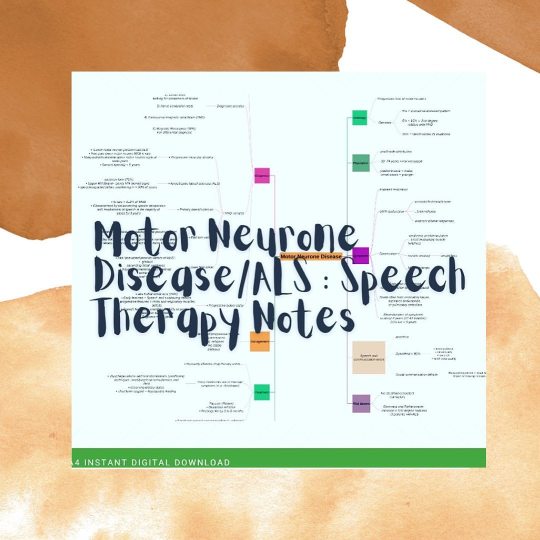
Excited to share the latest addition to my #etsy shop: Motor Neurone Disease/ALS: Speech Therapy Notes https://etsy.me/3ukqtuQ #als #motorneurone #mnd #studynotes #speechtherapy #speechpathology #speech #notes #therapy #studentspeechie https://www.instagram.com/p/CNNJzjZgWBl/?igshid=15lhhlqoe5819
#etsy#als#motorneurone#mnd#studynotes#speechtherapy#speechpathology#speech#notes#therapy#studentspeechie
1 note
·
View note
Text
Physiology of Ageing - Muscles
Loss of lean body mass
Infiltration of fat and connective tissue
Altered muscle metabolism
Insulin resistance
Reduced levels of key regulatory hormones
Impaired oxidative defence
Muscle strength peaks at approx. 20-40 years
Strength dictated by muscle cross-sectional area
Age-associated decline in concentric strength (leg > arm)
Decline in concentric strength occurs earlier than decline in eccentric strength
Power generation ability declines faster than max. strength
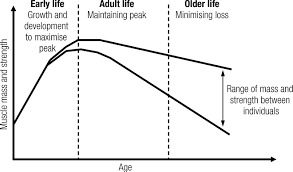
Sarcopenia
= loss of muscle mass (and strength) due to ageing
Two phases:
‘slow’ from 25 to 50 years (approx. 10% lost)
‘rapid’ from 50 onwards (approx. 40% lost from 50-80)
Deterioration in motor unit remodelling
Reduced cross-sectional area and functionality
Disuse atrophy (ageing is associated with becoming more sedentary(not as active)) may contribute to changes
Reduced regenerative capacity
Stem cell function affected by circulating factors?
‘Systemic inflammation’ theory of ageing?
Increased apoptosis
Anabolic resistance
Protein degradation (muscle & nerve)
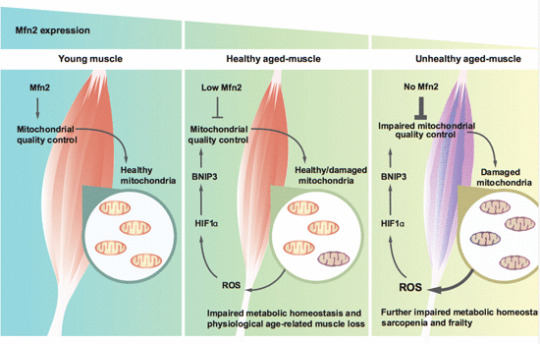
Motor Unit
Entire motor unit affected:
Alpha-motorneuron
Fibres innervated
Shift to predominance of slow-twitch fibres
Force transfer
Network of cytoskeletal proteins align and transmit force produced by actin and myosin along muscle fibres and out to extracellular matrix
E.g. Costameres = sub-sarcolemmal proteins that connect sarcomere to cell membrane
Found in Z and M lines
Transmit force laterally
Significant decrease in costameres and lateral force in ageing
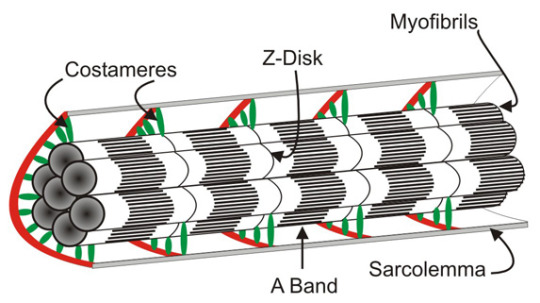
Muscle protein metabolism in ageing
Basal muscle protein synthesis unchanged
Protein/amino acid feeding leads to increase in muscle protein synthesis in both groups
BUT, response is smaller in the elderly
Resistance exercise leads to increase in muscle protein synthesis AND breakdown
BUT, synthesis rates lower in the elderly
Food + exercise needed for anabolic response
Response delayed in elderly, but can achieve similar rates
Metabolic Capacity
Decrease in Mitochondria
Decrease in capillary density
Reduced ability of muscle to extract O2 from blood
Decrease in enzymes for metabolic pathways
Reduced speed of O2 utilisation
Therefore ↓ (a-v)O2 diff (and ↓VO2max)
Co-morbitities
Decline in muscle mass and oxidative capacity, plus increased fat mass leads to greater risk of developing:
insulin resistance and/or type II diabetes
hyperlipidaemia
hypertension
Cardiovascular disease
Reduced bone mass contributes to loss of functional capacity and risk of injury
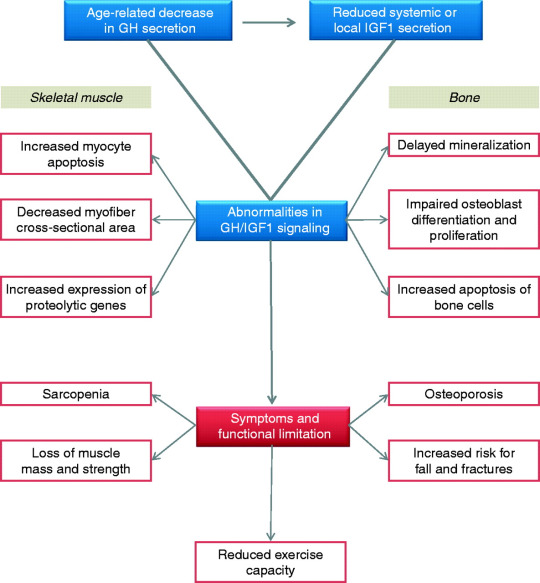
#muscles#ageing#physiology#muscle physiology#muscle#science#biology#human biology#biomedicine#Biomed#Biomedical Science#studyblr#notes#medblr#medicine#human physiology#2
280 notes
·
View notes
Photo
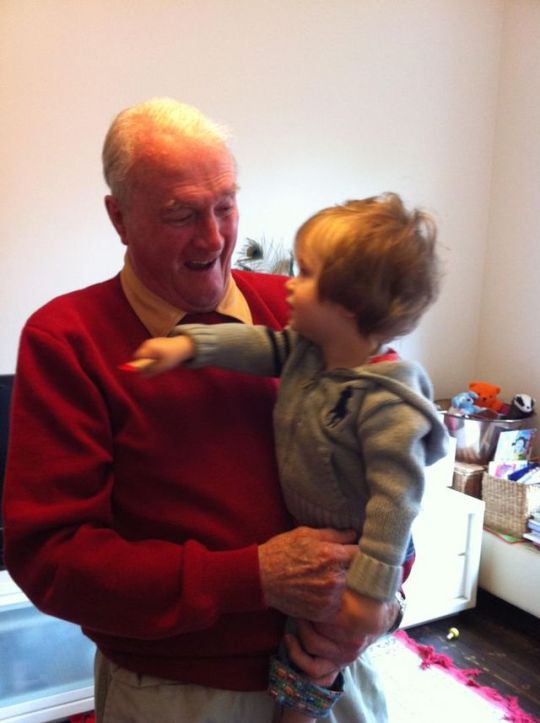
Just Pinned to LastRites: My grandfather meeting his great nephew 2 months before he passed away from motorneuron disease. I miss you Papa. http://bit.ly/2MSUgpP
0 notes
Text
Drug for common liver condition may be an effective treatment for <b>dementia</b>
... treating Frontotemporal Dementia and motorneuron disease, but it does not ... Fiona Carragher, Director of Research and Influencing at Alzheimer's ...
from Google Alert - Stopping Dementia https://ift.tt/3bXsHrS via Preventing Dementia Naturally
Dementia Prevention Programs
0 notes
Text
ALS gene therapy: viral vector trying to SOD 1 right message to motorneurons
ALS gene therapy: viral vector trying to SOD 1 right message to motorneurons
Lou Gehrig’s disease, or amyotrophic lateral sclerosis (ALS) hits over 5000 Americans each year, and about 30,000 people in the US have this disease at present. ALS is a fatal condition caused by degeneration of the motor neurons in the spinal cord that connect the brain with the muscle cells responsible for voluntary action. Since these nerve cells no longer function, skeletal muscle cells that…
View On WordPress
#adenovirus#ALS#amyotrophic lateral sclerosis#enzyme#gene mutation#gene therapy#genetic disease#motoneurons#nervous system#neurodegeneration#oxidative stress#RNA splicing#spine cord#superoxide#viral vector
0 notes
Text
Leg exercise is critical to brain and nervous system health
Leg exercise is critical to brain and nervous system health
"New research shows that using the legs, particularly in weight-bearing exercise, sends signals to the brain that are vital for the production of healthy neural cells."
This research supports what we already know, but in a new spin, that sensory input is just as important as motor output. This study gives new clues into why people with motorneuron diseases (spinalmuscular atrophy etc) decline so quickly as their movement impairment deepens.
This research might suggest that those who do not continue to weight bear load, such as bedridden or chronically ill patients and even the aging population, are at risk for faster decline. "Not only (do they) lose muscle mass, but their body chemistry is altered at the cellular level and even their nervous system is adversely impacted," says Dr. Raffaella Adami from the Università degli Studi di Milano, Italy.
"Limiting physical activity decreased the number of neural stem cells by 70 percent compared to a control group of mice, which were allowed to roam. Furthermore, both neurons and oligodendrocytes -- specialized cells that support and insulate nerve cells -- didn't fully mature when exercise was severely reduced."
"Reducing exercise also seems to impact two genes, one of which, CDK5Rap1, is very important for the health of mitochondria -- the cellular powerhouse that releases energy the body can then use. This represents another feedback loop."
Bottom line here folks, you have to move, you have to load, especially if you have a neurologic disorder and especially if you are declining in age. At the very least, throw some lunges or body weight squats into your day. Walk the stairs, don't ride the elevator. Move. Lift. Strain.
https://www.sciencedaily.com/releases/2018/05/180523080214.htm
6 notes
·
View notes
Photo

Excited to share the latest addition to my #etsy shop: Motor Neurone Disease/ALS: Speech Therapy Notes https://etsy.me/3ukqtuQ #als #motorneurone #mnd #studynotes #speechtherapy #speechpathology #speech #notes #therapy #studentspeechie https://www.instagram.com/p/CNNJzjZgWBl/?igshid=12vxsczwsbhd8
#etsy#als#motorneurone#mnd#studynotes#speechtherapy#speechpathology#speech#notes#therapy#studentspeechie
0 notes